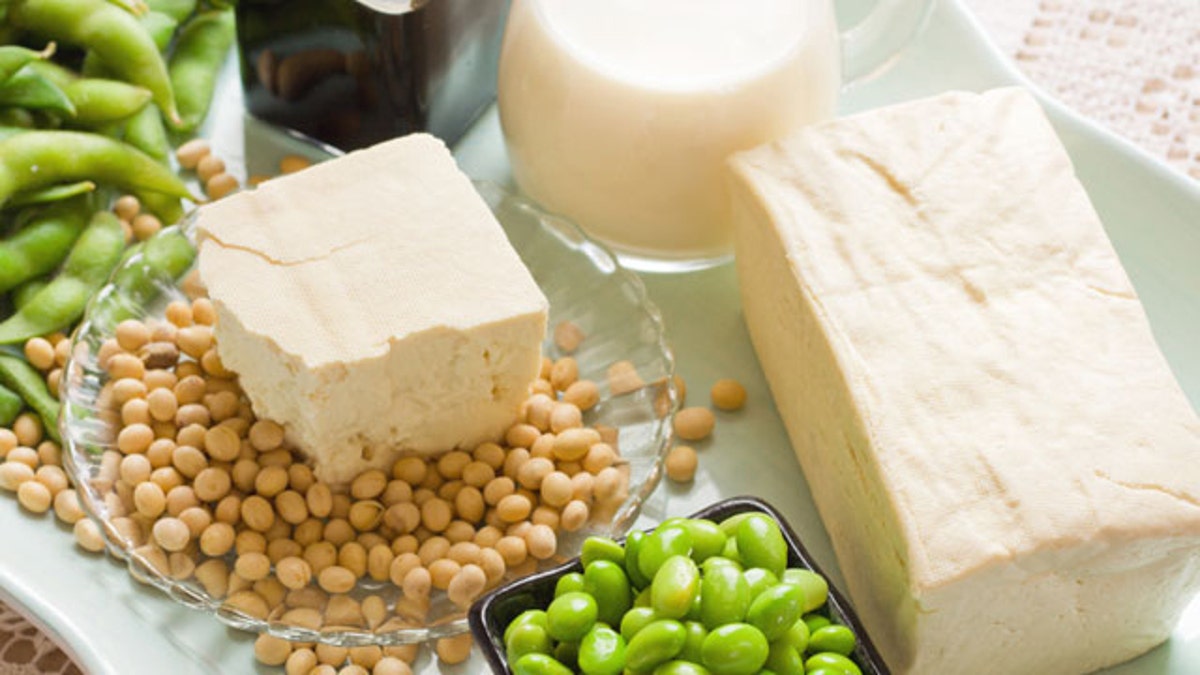
Soy has always been a great, low-fat source of plant protein, which is important for vegetarians and omnivores alike.
Since the FDA released a statement a decade ago saying that a diet rich in soy protein — 25 grams or four servings a day — can help reduce the risk of heart disease, we’ve all fallen in love with soy products. But it’s also controversial.
Research has shown that soy may have both positive and negative effects on breast tissue. In fact, the American Cancer Society recommends that women at risk or those with breast cancer limit their soy intake to two to four servings a week.
On the other hand, research has also indicated that, if introduced at a young age, soy may reduce the risk of breast cancer and prevent bone loss (and that it doesn’t promote estrogenic effects in adolescent boys, as has been suggested). What does this all mean? You should incorporate soy into your diet in amounts
that depend on personal factors.
Here’s how to hit the soy sweet spot:
Know your portion sizes:
One serving of soy is equivalent to ½ cup whole soybeans, ½ cup tempeh, ½ cup texturized soy protein, ½ cup soy nuts, 4 ounces tofu, 2 tablespoons miso, or 1 cup of soy milk.
Look out for hidden soy, especially if you’re at risk for breast cancer:
Soy may be hidden in lots of food products, including protein bars, cereals, and bread products, so read the labels and know the different types. Soy products that undergo more processing, like soy bean oil, soy sauce, and soy lecithin, have fewer isoflavones — which may be better varieties to eat if you’re at risk for breast cancer. At the same time, you want to avoid foods with high isoflavones, those that contain soy protein isolate, soy protein concentrate, soy flour, and soy fiber. Soy milk, miso, tofu, and soy nuts
are in the middle; eat them in moderation.
Be cautious if you have thyroid issues:
Soy contains “anti-nutrients,” which have been linked to suppressed thyroid function, including lower protein digestion and mineral absorption, in people with a pre-existing condition. Soy supplements may also affect thyroid medication. While the science is a bit unclear, some experts recommend eating only fermented products because the process deactivates the “anti-nutrients.” These foods include miso, tempeh, and tofu.
Go organic if possible:
Over 90 percent of American soy is genetically modified, so when possible buy organic. Genetically modified foods may put you, and especially children, at risk for developing food allergies. Plus, by going organic or buying local we’re helping out the environment and our farmers.
Tanya Zuckerbrot MS, RD, is a nationally known, registered dietitian based in New York and the creator of a proprietary high-fiber nutrition program for weight loss, wellness and for treating various medical conditions. Tanya authored the bestselling weight loss book The F-Factor Diet, and she is the first dietitian with a national line of high-fiber foods, which are sold under the F-Factor name. Become a fan of Tanya on Facebook, follow her on Twitter and LinkedIn, and visit her website Ffactor.com.








































